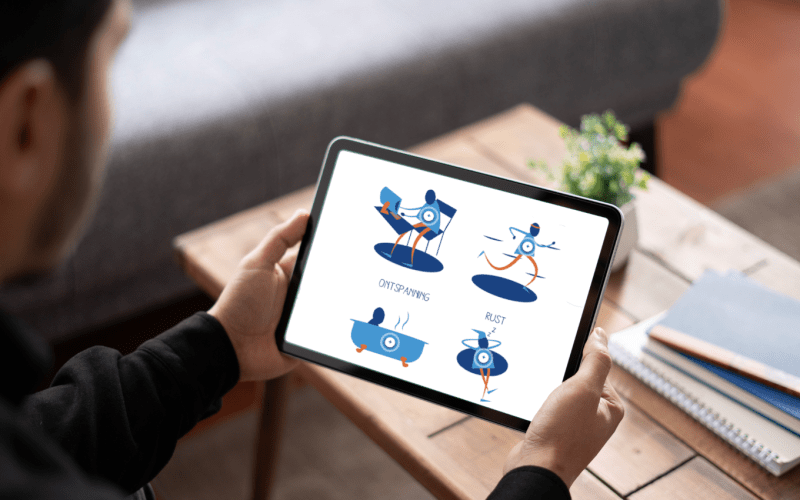Researchers at UMC Utrecht have developed an online module to support adults with neuromuscular disorders in managing fatigue. The program offers practical tips and scientifically grounded insights into the causes of fatigue and how to cope with it.
There are hundreds of different neuromuscular disorders, each affecting daily life in its own way. While these conditions are often incurable, proper medical care and support can help manage symptoms more effectively. Fatigue is one of the daily challenges faced by many people with neuromuscular disorders. “With this module, we wanted to provide practical and accessible tools to help patients better manage their energy,” explains Eline Scholten, a researcher at the Knowledge Center for Rehabilitation Medicine Utrecht (KCRU), a collaboration between the UMC Utrecht Brain Center and De Hoogstraat Rehabilitation.
The module is a form of “blended care,” combining face-to-face interactions with online support. Patients can independently acquire knowledge before their consultations, allowing them to ask more in-depth and personalized questions during their appointments. “This approach aims to make care more efficient and personal,” says Anita Beelen, senior researcher in neuromuscular disorders.
The program covers topics such as energy pacing, ergonomics, physical activity, mental relaxation, sleep, and nutrition. It was developed by a multidisciplinary team of clinicians, researchers, and patients. Eline explains: “The module includes texts, illustrations, exercises, and short videos in which healthcare providers offer explanations.”
The module has already been tested by an initial group of rehabilitation patients, primarily those with polyneuropathy, a neuromuscular disorder that damages nerves in the arms and legs. Participants responded positively, giving the program an average score of 7.8. One male participant, aged 66, noted: “The module is a good starting point for further treatment. It helps to focus more specifically on the various factors involved.”
Other participants described the module as “very accessible,” “valuable for newly diagnosed patients,” and “pleasant and user-friendly.” An impressive 95% of respondents said they would recommend the program.
While other programs exist to help manage fatigue in neuromuscular disorders, the focus on blended care makes this one unique. “We want to ensure that people with neuromuscular disorders don’t have to waste unnecessary energy traveling to a location,” Eline explains. “For this group, that is a significant burden.”
The researchers are already looking to the future, with plans to develop a second online module. Anita says: “This next module will focus on two other key themes for neuromuscular disorder patients: behavioral change and acceptance.”
More information about the module Managing Fatigue is available on the UMC Utrecht website.
Read more about the module (Dutch)